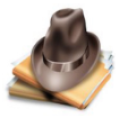Bob Motley, Last Surviving Negro League Ump, Recalls Baseball History

Bob Motley, a 91-year-old from Kansas City, Mo., has lived through remarkable times in our history.
His story is one of a black man in love with baseball. Racial integration didn't come to the major leagues until 1947, when Jackie Robinson broke the color line at first base for the Brooklyn Dodgers.
Motley is the last surviving ump from Negro League baseball. He also served with the first-ever black Marine regiment in World War II, the Montfort Point Marines.
He tells Tess Vigeland, guest host of NPR's weekends onAll Things Considered,that his umpiring career began as he recovered from a gunshot wound at a military hospital on Okinawa.
"I could look out the window and see there was a ball field, so I decided I'd hop down with my crutches. And they needed an umpire," he says.
So they gave him a mask and chest protector, and he began calling balls and strikes for the Marines.
Motley was eventually discharged from the U.S. military with a Purple Heart. When he moved to Kansas City, he went to the nearby stadium and asked if they needed an umpire. The chief umpire initially turned him away.
"He said, 'Kid, you don't know nothing about umpiring.' I said, 'I umpired in the Marine Corps,' " he says. But the chief umpire sent him away.
He was back the next week, asking again. Eventually, thanks to his determination, he was given a chance to umpire at third base. The president of the league happened to be there and told Motley he did a good job, and offered him a job to start traveling with the league.
There was one condition: he had to ride on the bus with the players, the same players he'd be making calls against.
"Willie Mays, Hank Aaron, Satchel Paige; I didn't know at that time they [were] that good," he says.
Ten years into his umpire career, Motley finally went to umpire school in Florida. He was the first black person to do so after, a law in the state banning whites from teaching blacks was lifted.
Going to umpire school is required to be an ump in the major leagues. But once he graduated, despite finishing at the top of his class, Motley was not offered a job. The only time he got called to the major leagues is when their umpires were on a strike, and Motley was asked to cross the picket line.
Motley says he asked if he would have a job after the strike was over.
"They said, 'We will let you know at that time,' " he says. "I said, 'I'll let you know right now, I'm not crossing the picket line then.' "
After that, he said he wasn't going to try for the major leagues anymore. But he kept umpiring and eventually, helped found a museum dedicated to preserving the history of the Negro League.


What a tremendous loss for true baseball fans that we couldn't have seen Josh Gibson (the black Babe Ruth), Oscar Charleston (the black Ty Cobb), Satchel Paige and many other black greats competing while in their primes with the white ballplayers in the major leagues before 1947.
Even the umpires in the Negro Leagues had a unique style. Check out these pictures of the umpire in the article, Bob Motley. I'd like to see the umpires today pull off these moves:
Outstanding article and history Mike.
Truly sad that these great players and umpires were not allowed to play in the Majors.
One thing that struck me was that he was asked to cross a picket line to umpire during a strike, but nothing but the old run around when he asked if the job would be permanent. Good for him for not crossing the picket line and sticking to his honor.
Great article, what a neat story!
It is interesting that his first umpiring experience was in Okinawa Japan while recovering from wounds received as a US Marine in WWII.
If you would like to hear the 5 minute radio interview with this gentleman, here is the link:
Great link Mike, thanks.
Glad you liked it Kavika and Larry. Like some others, I am going to desist (as much as possible) from futilely arguing with idiots on the Front Page. Conversing in My Groups and occasionally posting seeds which I find interesting will better serve my limited time.